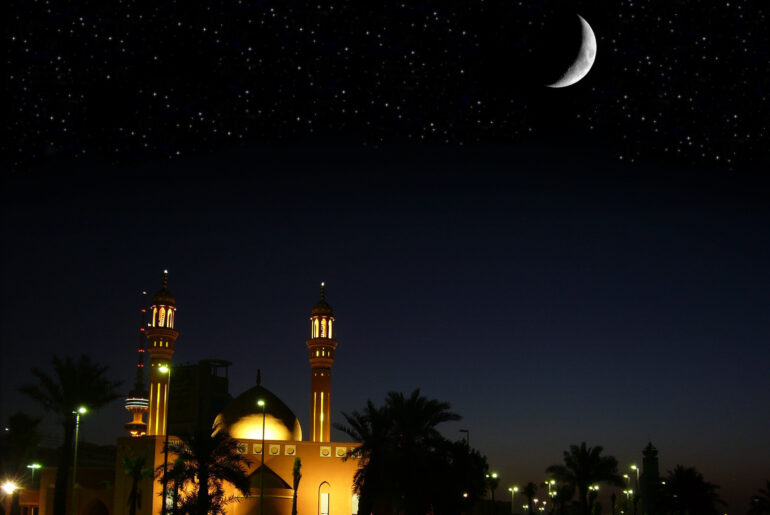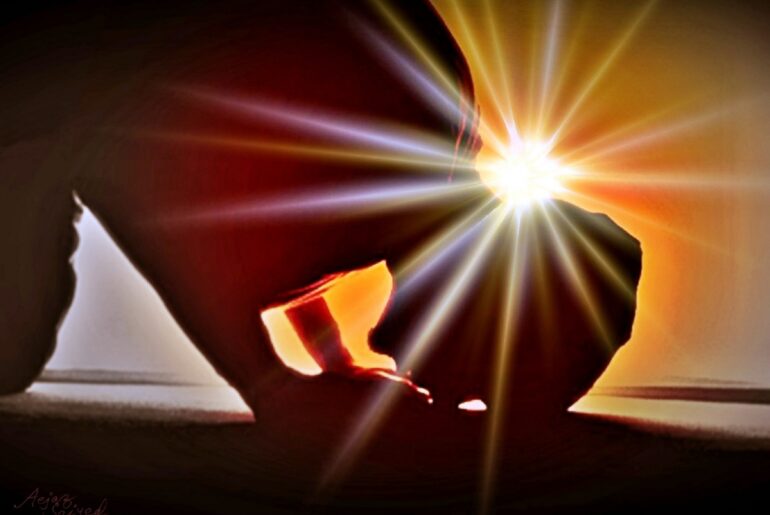Photo Courtesy: https://www.alquranclasses.com/
Do you remember your first Ramadhan? I am talking about those days when fasting to you was for mum and dad’s sake. That is to say; if mum or dad and of course the “reporter” sibling in the family did not see you break the fast, your fast is still valid. You can deny it and I can, but Allah saw you every time you drunk half the water meant for rinsing your mouth while taking wudhu. But of course it was not a big deal, we were young and the thought of staying the whole day without food or water to drink either seemed torturous or mission impossible. I remember thinking to myself that even the adults sneak a sip or two of water when no one is watching because there is no way anyone can stay that long without water. At the age of 7 to 10 years Ramadhan to me was to be able to convince the people around me that I have stayed the whole day with neither food nor water.
Imam Siraj Wahaj puts it nicely when he says, Islam means progress. Right now I can look back at those years and see the progress in my Ramadhan. Maybe the adults around me understood it too and that is why they did not punish me when I broke my fast two hours to Magharib adhan (too dumb, I know that now). I was on training and it was okay to slip here and there, my relation with Ramadhan was still being nurtured. However, I never cease to enjoy the holy month. Apart from the hunger and thirst torture, there was the joy of having the extended family meeting up almost every day and excessive playing with friends (no wonder the unbearable thirst). Having the masjids full during all the swalahs, cooking the best foods and being able to witness the amount of blessings increase in the month. Till date, Ramadhan at my home is known as the month of barkah; not because we were taught so but because we saw the blessings. And then there was the ultimate joy that was Eid. So, in a nutshell, Ramadhan to most of us at that young age was torture from hunger and thirst, good food, friends and family.
When you do something wrong and you know it is wrong but no one reprimands you for it and they all act like it was okay for you to do what you have done, your conscious kills you. Or at least that’s what happens to me. At the age of 11-12 years, during Ramadhan all I could think about is that I got to do better. I have to see to it that I stay true to my fasting. It was a real struggle, reminding myself when it got hard that I can do it, I can stay the whole day with no water. Accomplishing this would make me happier than ever during the time of breaking fast and whenever I failed the enthusiasm of breaking the fast was lost all together. Ramadhan to me then was to be able to stay with no food or water the whole day; and it was enough.
Whenever I speak about Sheikh Khalifa, some people look at me with that eye of “oh she is at it again”. The truth is that given a chance to speak about my high school, I would not shut up. I love my high school. Not because it is the best high school in the Coastal province, though it is a bonus, but because of the role it played in building me as a young Muslimah. It was there that I also learnt that finishing the recitation of the whole Qur’an was highly recommended during Ramadhan. I still remember how people would struggle to finish the Qur’an at least twice while I would be struggling with my one khatm. I admit, I would be disappointed when I could not meet my one khatm goal, knowing that most of my friends had two khatms and others even three. All the Ramadhans in Sheikh Khalifa, my goal was that one khatm. I think I realized it once though I’m not so sure.
One of my biggest dream is to speak Arabic. I once told my friend that the day I would be able to speak Arabic fluently, I would not stop talking. He said that is the reason why I have not learnt Arabic till now. I am sure he is wrong. Being outside sheikh Khalifa my thirst for Arabic became intense; not just so as to be able to speak but I really wanted to understand the message in the Qur’an. My recitation was fluent but apart from a few surahs, I didn’t understand most of it’s message. So I asked one of the local ustadh to teach me Arabic at the same time I found myself a mushaf with the translation. And if you thought finishing a khatm was hard try doing it with the translation. Truth be told, I’m yet to accomplish it and I am disturbed by it. Still I was glad that I not only got to recite the qur’an fluently but I could also understand what it was saying to me.
Every Ramadhan has been different to me with different meanings. I have studied specific surahs, I have used Ramadhan to quit some sins. I have done memorizations of specific surahs, supplications and hadith. I have struggled to make each Ramadhan mean something to me. And it all comes back to; Islam means progress. I have seen my progress in my meaning of this beloved Holy month, and if Allah enables me to see more Ramadhans, I pray that I find more meaning to it.
Now as a 25 year old lady I ask myself what does Ramadhan mean to me and my mind goes back to the verses of the Qur’an that I memorized a long time ago due to how much they would be repeated during this month;
“O you who have believed, decreed upon you is fasting as it was decreed upon those before you that you may become righteous” (2:183)
In them I get my answer. This month was meant for me to attain Taqwa. To build the strongest bond possible with my creator and as Umar ibn Abdul Aziz (Rahimatullah) said ;
“Taqwa is not praying long into the night and fasting long into the day but it is to abandon the obstacles between you and Allah (SWT).”
In other words, it is to abandon sin.
Ramadhan was meant for me to have that ultimate connection with the Qur’an. Not only by finishing multiple khatms or memorization but to be able to gain the guidance that Allah talks about when he says;
“Ramadhan is the (month) in which the Qur’an was sent down, as a guide to mankind and a clear guidance and judgement” (2:185)
So yes, Ramadhan is meant for sharing, showing love and compassion to each and every one of us, for the ummah to be united more than ever, but at an individual level, What does Ramadhan mean to you?
RAMADHAN MUBARAK. WA KULLU 3AMUN WA ANTUM BI KHEYR


